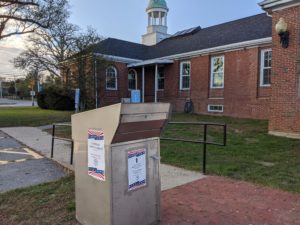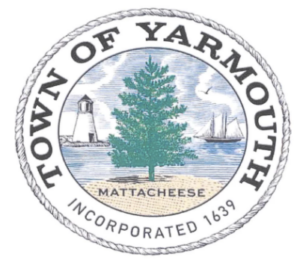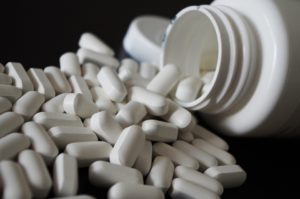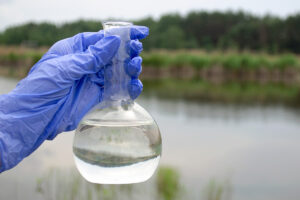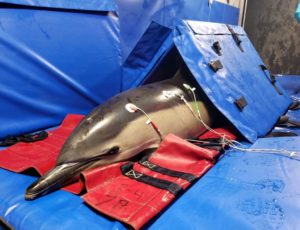
Swan at Mill Pond
HYANNIS – Title 5 septic regulation changes have been finalized by state officials.
Under the new regulations, residents living nearby nitrogen-impaired watersheds will have to upgrade their septic systems unless their town applies for a Watershed Permit confirming that they are working on other solutions such as sewering.
Massachusetts Department of Environmental Protection Deputy Commissioner Gary Moran said they have been working with towns on solutions to the Cape’s water quality problem, but change has been slow.
“Communities have moved forward. Some implementing solutions, some still developing plans. But the progress has been inconsistent and unpredictable, so we think these combined two regulatory packages will be really helpful in moving things forward,” said Moran.
He adds that the issue also impacts more than just the environment.
“While it’s an environmental problem, it’s also an economic problem and it impacts fishing, shell fishing, recreational opportunities, tourism, real estate values even, and unaddressed the problem will become worse,” Moran said.
Governor Maura Healey’s recently filed tax package includes rebates of up to $12,000 for septic upgrades, and Barnstable County also offers low-to-no-interest loans through its Aquifund.
The full statement from the state can be found below:
Today, the Healey-Driscoll Administration announced the final regulations that will set Cape Cod on a path to reverse decades of nitrogen pollution and restore estuaries to their natural state. The regulations, issued by the Massachusetts Department of Environment Protection (MassDEP), address elevated nitrogen levels from primarily septic systems and facilitate community-wide solutions to prevent excessive nutrient-loading of local waterbodies.
“Nitrogen pollution is one of the most pressing environmental and economic problems facing Cape Cod,” said Governor Maura Healey. “I’m grateful for our administration’s partnership with Cape communities to develop an innovative path forward to restore and protect some of Massachusetts’ most precious water resources. Looking ahead, we’ll continue to build on our collaboration with Cape officials and the Legislature to ensure there is financial support as the new regulations are implemented.”
“As the former mayor of a coastal community, I have a deep appreciation for how critical coastal resources are,” said Lt. Governor Kim Driscoll. “In developing these regulations, we regularly engaged with Cape officials and residents to find a solution that is by no means easy but will be incredibly effective in preserving their greatest asset. This is the kind of state-municipal collaboration that we will continue to model in the years ahead.”
The discharge of excessive nutrients, especially nitrogen, primarily from septic systems has been an ongoing problem on the Cape. Elevated levels of nitrogen in waterbodies causes accelerated growth of nuisance plants, weeds, and algae that use up much of the oxygen in the water and force out indigenous fish and plant species. Waterbodies often also experience a displeasing cloudy green coloring and unpleasant smell.
Watershed Permitting regulations are a new, innovative approach to address these challenges and will give communities on the Cape a strategy to improve and restore area waterways to their natural state. The Watershed Permit is a 20-year permit that enables communities to design and implement wastewater solutions tailored to the specific watersheds and communities’ needs. Watershed Permits will enable communities to implement a range of strategies to reduce nitrogen pollution, including centralized wastewater treatment and alternative approaches, such as aquaculture, innovative and alternative septic systems, permeable reactive barrier walls, and fertilizer reduction. Implementation of long-term wastewater plans is the most efficient and effective way to address these water quality challenges. Communities across the Cape have already been working on Comprehensive Wastewater Management Plans that feature a variety of nitrogen-reducing strategies.
Cape Cod communities will have two years to opt into a watershed permitting process. Under new requirements in MassDEP’s on-site septic system regulations (Title 5), if communities choose not to obtain a watershed permit for a nitrogen sensitive watershed within two years, new septic systems in the watershed will be required to include enhanced nitrogen reducing treatment technology and existing systems will need to upgrade septic systems within five years.
“When the environment suffers, so does a community’s quality of life,” said Energy and Environmental Affairs Secretary Rebecca Tepper. “Mitigating nitrogen pollution will preserve and grow the tourism, recreation, and fishing industries on Cape Cod. The Healey-Driscoll Administration is invested in preserving these beautiful assets for future generations, and these new regulations help us do that.”
“I want to thank the team here at MassDEP and the residents and local officials of Cape Cod,” said MassDEP Commissioner Bonnie Heiple. “Faced with a complex challenge, together, we developed an innovative and flexible approach that will result in thriving waterways for years to come.”
Since MassDEP issued the draft regulations last October, the Department held five public hearings, four information sessions, held “office hours” for state and local officials and community leaders and has received more than 1,000 public comments. In response to that feedback, MassDEP made several adjustments to the draft regulations, notably:
- The final regulations are focused only on Cape Cod watersheds that have been demonstrated to be impaired due to excessive nitrogen pollution, or “Natural Resource Area Nitrogen Sensitive Areas.”
- The draft regulations had proposed a public process whereby MassDEP could also designate coastal watersheds as “Natural Resource Area Nitrogen Sensitive Areas” in Southeastern Massachusetts and on the Islands as necessary.
- The final regulations do not include that provision for watersheds off-Cape Cod based on extensive comments maintaining that these communities have not had the same time to investigate and plan to address nutrient pollution, and that they may face different sources of pollution and environmental conditions than Cape Cod.
- The Department intends to facilitate more nutrient wastewater planning for communities off Cape Cod, enabling them to be better prepared in the near future to address nitrogen pollution to embayments and estuaries.
- The final regulations provide additional time for upgrading existing septic systems.
- The draft regulations proposed that the five-year upgrade timeline begin upon the effective date of the regulations.
- In the final regulation, the five-year upgrade timeline does not start until after a two-year period where communities can opt into the Watershed Permitting program by filing a Notice of Intent or Watershed Application (if the NOI is filed and a community obtains a watershed permit, the upgrade requirements will be stayed or paused.)
- The final regulations included provisions to provide flexibility in the Watershed Permitting process to address comments expressed by communities, including changes to streamline the transition of existing municipal wastewater plans, such as Comprehensive Wastewater Management Plans and Targeted Wastewater Management Plans, to new watershed permits.
The Healey-Driscoll Administration is committed to continue working side-by-side with Cape communities and their elected officials to provide financial support and identify opportunities for additional assistance for communities and homeowners to comply with these regulations. Currently, the Massachusetts Clean Water Trust provides 0 percent financing for eligible nutrient reduction projects, as well loan forgiveness to disadvantaged communities. The Trust has also recently utilized American Rescue Plan Act funds to provide additional financing support. The Cape and Islands Water Protection Fund, a fund dedicated to supporting wastewater projects in participating communities on Cape Cod and Islands, is supported by a 2.75 percent excise tax on lodging or short-term rentals that also provides additional substantial loan forgiveness.
Barnstable County’s “Aquifund,” provides accessible low-interest loans for all residential wastewater management measures, especially for those with greater financial need. The fund, supported by the Clean Water Trust, recently expanded its program to include loans for the installation of innovative, alternative septic system technologies, as well as sewer connections. Aquifund provides 0 percent, 2 percent, and 4 percent loans to homeowners depending on income.
Earlier this year, Governor Healey filed a tax package that included increased tax rebates of up to $12,000 for homeowners that undertake upgrades to their septic systems. The Administration is continuing to work with the legislature on this provision as they finalize this legislation.
Please visit MassDEP online to view the Title 5 and Watershed Permit regulation updates.
Statements of Support
Senator Julian Cyr, Cape and Islands (D-Truro)
“Septic systems are the number one source of nutrient pollution harming Cape Cod estuaries and embayments. The Healey-Driscoll Administration’s new watershed permitting and Title 5 regulations pioneer pollution mitigation approaches that address Cape Cod’s unique needs. The Cape and Islands legislative delegation remains committed to continuing to bring financial resources to Cape Codders to fund wastewater solutions. These efforts are critical to safeguard our region’s fragile natural environment. I applaud the Governor and Lt. Governor’s partnership in tackling Cape Cod’s multi-billion-dollar wastewater problem.”
Mark Forest, Yarmouth Selectman and Chairman of the Barnstable County Commissioners.
“I want to thank the Healey-Driscoll administration for meeting and listening to the concerns of Cape Cod officials. We appreciate the changes that have been made in the final watershed regulations and we look forward to working with the Governor and our legislative delegation to secure the necessary funding to implement this initiative.”
Kevin Galligan, Chair of the Cape & Islands Water Protection Fund Management Board and President of the Cape & Island Municipal Leaders Association.
“Thank you to the Healey-Driscoll Administration for working so closely with us to implement these new and revised regulations that will improve the health of our environment that is directly connected to a vibrant economy.”
Andrew Gottlieb, Executive Director of the Association to Preserve Cape Cod
“These regulations represent a milestone in the decades long efforts to restore the water resources of Cape Cod. Thanks to the Healey-Driscoll Administration, the septic code for Cape Cod will promote the health of our water resources rather than be a contributing factor in their decline. These rules empower and encourage watershed and town scale solutions and are in the best interests of Cape Cod taxpayers and all who treasure Cape Cod’s water. We are very appreciative of this bold action by the Healey-Driscoll Administration and the professionals at DEP to make these long talked about rules a reality.”
Kristy Senatori, Executive Director of the Cape Cod Commission
“Promoting healthy coastal embayments will also provide the infrastructure to support a vibrant Cape Cod economy and necessary housing development and redevelopment. These regulations are a critical step in implementing the 208 Plan and supporting the dedicated local, watershed-based planning of wastewater projects that our towns have been working hard to pursue.”
More stories from CapeCod.com:
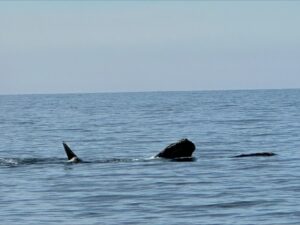 Whales Arrive in Cape Cod Bay February 14, 2024
Whales Arrive in Cape Cod Bay February 14, 2024- Cape-Based Group Gets New Federal Contract February 1, 2024
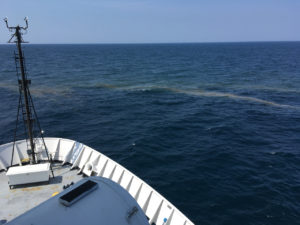 Annual Report Continues To Go After Cape Cod Water Quality January 18, 2024
Annual Report Continues To Go After Cape Cod Water Quality January 18, 2024









